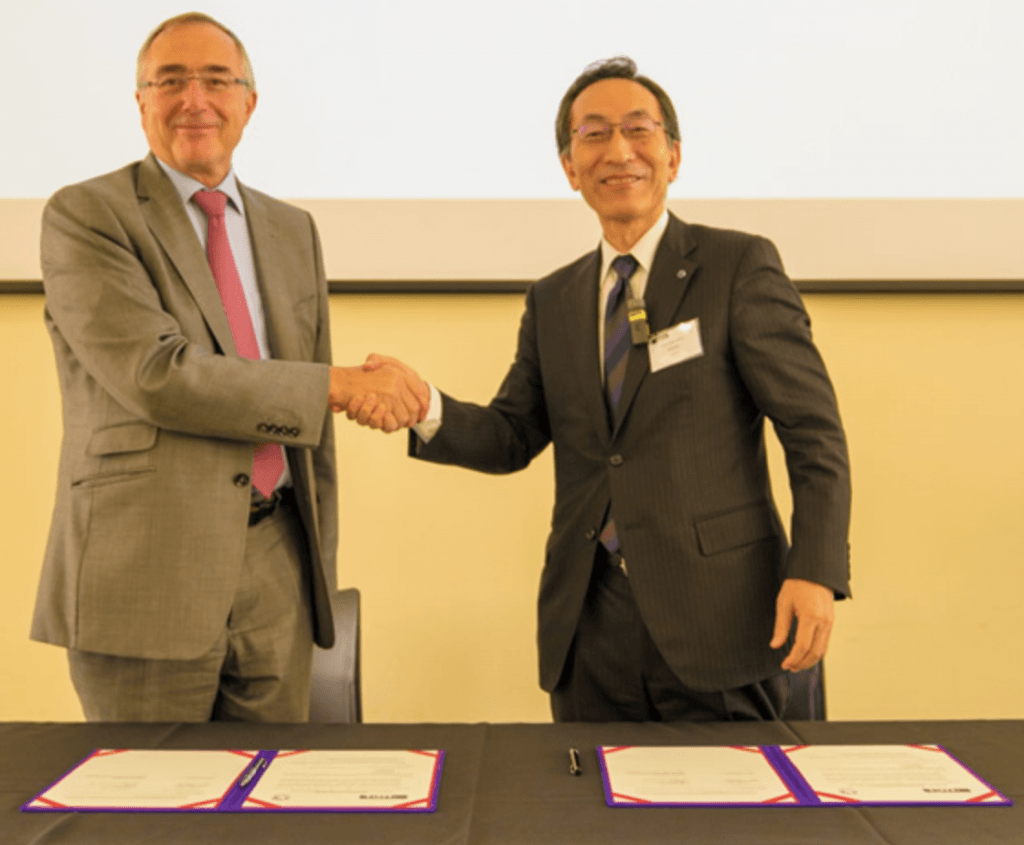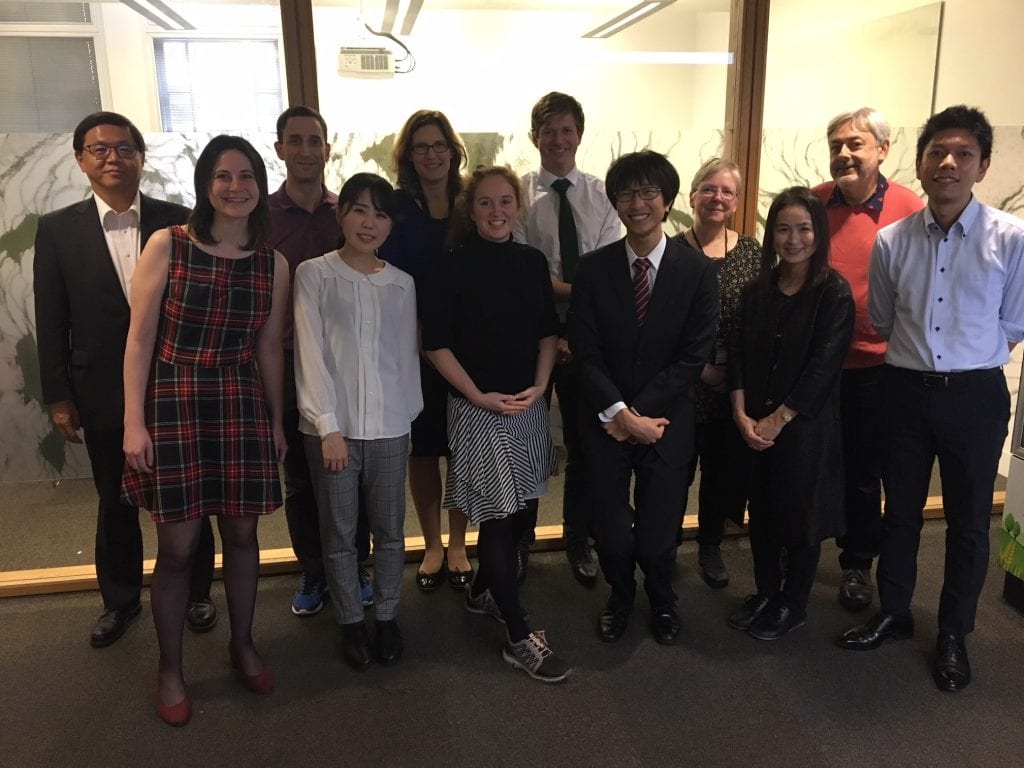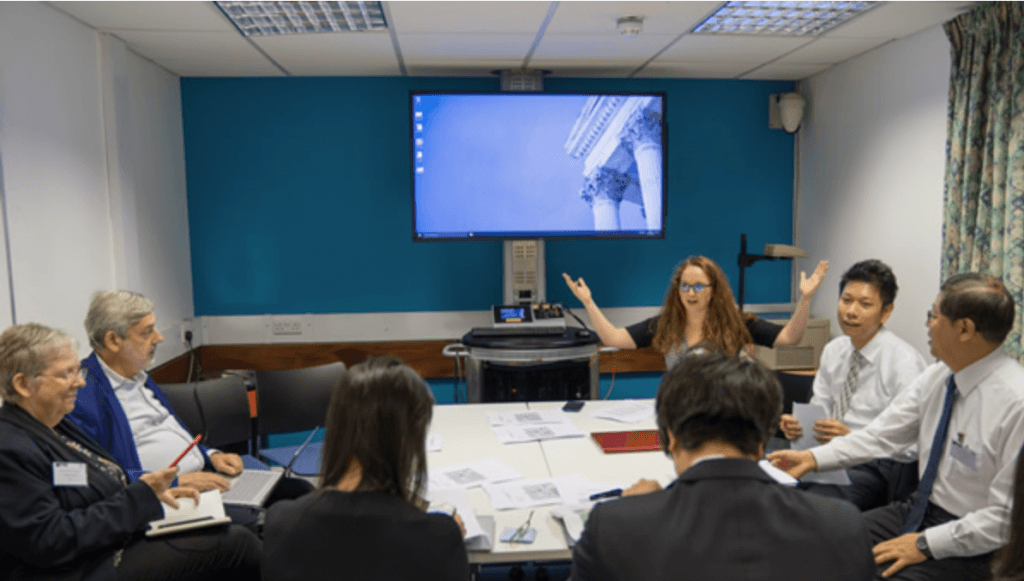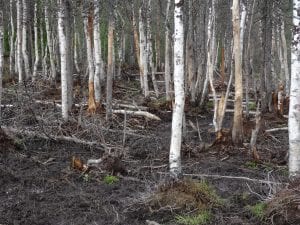Disaster Science is one of five key themes for partnership between UCL and Tohoku University
By Joanna P Faure Walker, on 21 October 2018
UCL and Tohoku University signed a Memorandum of Understanding on Thursday 11th October 2018 as part of the kickoff partnership event. President Arthur and President Ohno stated their commitment to continuing research exchange, following the agreement of the previous five years.

President Arthur and President Ohno sign memorandum of understanding Photo source: https://www.tohoku.ac.jp/japanese/2018/10/news20181018-02.html
Workshops for five key themes were held on the 11th and 12th October as part of the event that saw 50 delegates come to UCL from Tohoku University. The five themes were disaster science, data science, neuroscience, higher education and material science and spintronics.

The disaster science delegation (From left to right) Prof. Shinichi Kuriyama Dr Katerina Stavrianaki Dr Ilan Kelman Ms Anna Shinka Dr Tiziana Rossetto Dr Joanan Faure Walker Dr David Robinson Assist. Prof. Shuji Seto Prof Maureen Fordham Ms Miwako Kitamura Prof David Alexander Assoc. Prof. Anawat Suppasri
The disaster science delegation comprised representatives from UCL IRDR, Tohoku University IRIDes (International Research Institute for Disaster Science), and UCL EPICentre. The workshop has helped form new collaboration opportunities building on the existing relationship between these research institutions. Our collaboration cincludes joint publications in earthquake stress transfer (e.g. Mildon et al., 2016), disaster fatalities (Suppasri et al., 2016), and temporary housing (e.g. Naylor et al., 2018). We look forward to the next five years of working with all our colleagues at IRIDeS to enhance the field of disaster science.

Discussions during the disaster science workshop Photo source: https://www.tohoku.ac.jp/japanese/2018/10/news20181018-02.html
The disaster science workshop included the following talks, which prompted discussions of further questions we would like to research together:
- Assist. Prof. Shuji Seto (IRIDeS)
- New Research Project on the Fatality Process in the 2011 Tohoku Earthquake for Survival Study from Tsunami Disaster
- Dr Ilan Kelman (UCL IRDR)
- Disaster, Health, and Islands
- Prof. Shinichi Kuriyama (IRIDeS)
- Challenge of Public Health to Disaster – Using Public Health Approach and Artificial Intelligence Techniques
- Prof Maureen Fordman (UCL IRDR)
- Gender and Disasters
- Ms Miwako Kitamura (IRIDeS)
- Gender problems as seen from the oral history of the bereaved families of the deceased Tsunami in Otsuchi Town, during the Great East Japan Earthquake
- Ms Anna Shinka (IRIDeS)
- A questionnaire study on disaster folklore and evacuation behavior for human casualty reduction – Case of Kesennnuma City, Miyagi Prefecture.
- Prof Tiziana Rossetto (UCL EPICentre)
- Building response under sequential earthquakes and tsunami
- Assoc. Prof. Anawat Suppasri (IRIDeS)
- Building damage assessment considering lateral resistance and loss estimation using an economic model “Input-Output table”
- Prof David Alexander (UCL IRDR)
- A framework for Cascading Disasters
- Dr Joanna Faure Walker (UCL IRDR)
- Disaster Warning, Evacuation and Shelter
NHK, the largest broadcaster in Japan, reported the workshop with a focus on Miwako Kitamura and the UCL Gender and Disaster Centre: NHK report (in Japanese)
 Close
Close



